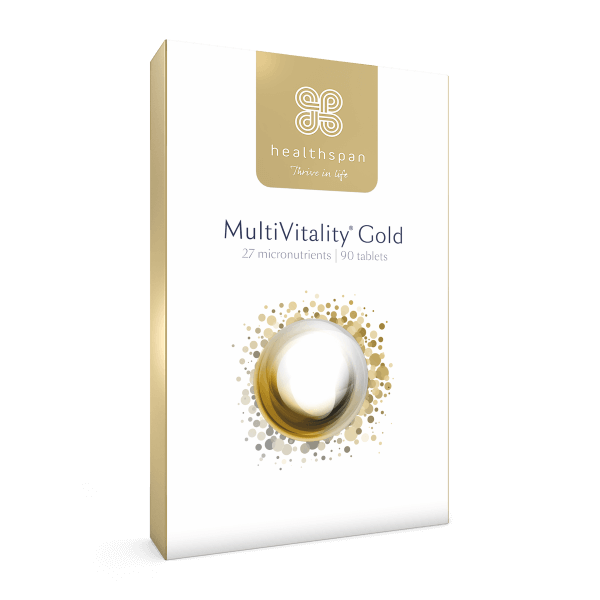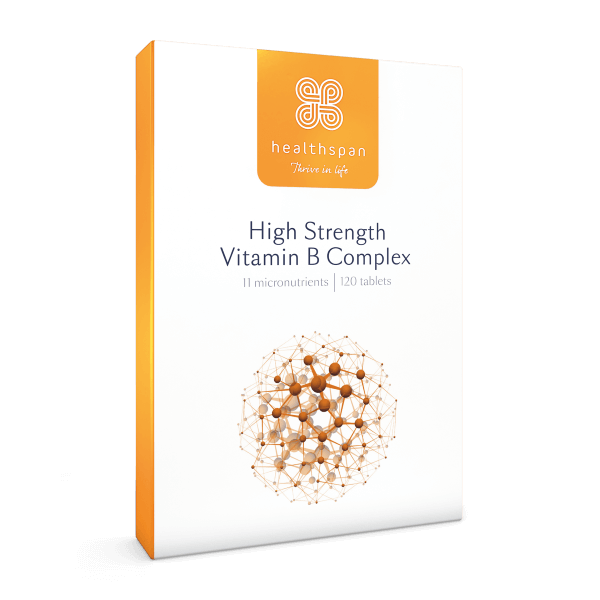Supplements aren't an instant fix, but there are several factors that affect how quickly you will see the benefits.
Do you take your supplements every day? Chances are the answer is "not always", as research shows that up to half of people don't even take medicines as frequently as their doctor advises.
Why is it important to take supplements and medications regularly?
With medicines, adherence rates of at least 80% are needed for an optimal therapeutic benefit, but the average is only 50%.1 Often, this is because people lose faith when the drug doesn't work as quickly as desired, or because the treatment is for a condition such as high blood pressure that's not causing troublesome symptoms.
You might therefore think that rates for food supplements and herbal medicines would be just as poor, but the results of 46 studies found that, overall, 78% of participants took their supplements as advised.2
How long does it take a supplement to start working?
Some food supplements are taken to solve a problem, whereas others are taken to help prevent nutritional deficiencies and maintain a long and healthy life.
For example, you may take turmeric and glucosamine to help with a problem with your joints. You may notice a difference quickly with turmeric, but with glucosamine you may not notice a difference in the short term.
However, studies show that glucosamine can genuinely make a difference to your health in the long term. The same is true of supplements that are not taken to solve a specific problem, but to help you lead a long and healthy life, such as a multivitamin, or lutein and zeaxanthin to maintain healthy vision. The key is taking them regularly.

Supplements take different amounts of time to work, but all need to be taken regularly.
Multivitamins
The UK National Diet and Nutrition Surveys (NDNS) show that the average (median) dietary intake for women aged 19-65 years is low for vitamins A, B2, C , D and E, and for the minerals calcium, iodine, iron, magnesium, selenium and zinc.3
This can be the result of cutting back on food intake to lose weight, or avoiding certain foods due to individual intolerances or preferences. A multivitamin and mineral supplement can help to prevent deficiencies, but how quickly it will work to correct existing deficiencies depends on several factors, including whether or not that vitamin or mineral is stored in the body and the supplement's bioavailability – i.e. how easily it is absorbed into the body in a form that is usable by cells.
In general, fat-soluble nutrients, such as vitamins A, D, E and K, coenzyme Q10, and fish oil, are best taken with a meal to maximise absorption. The fat-soluble vitamins are stored in your liver, so it can take months or even years for a low intake to lead to problems but, conversely, deficiencies are relatively easily corrected.
Researchers from Oregon State University have suggested that, with increasing age, we develop more vitamin and mineral deficiencies due to eating less food and absorbing nutrients less efficiently, which contributes to reduced immunity. Taking a daily multivitamin may help to replenish deficiencies so the immune system can work at optimum efficiency.4

MultiVitality Gold
One-a-day health support
- The whole spectrum of vitamins and minerals in one tablet
- Suitable for vegetarians and vegans
- Protect yourself from nutritional deficiencies for just 7p a day
Vitamin B12 is only absorbed in the lower intestine if a special protein called 'intrinsic factor' is present. This protein is made in the stomach by the same cells that produce hydrochloric acid. As we get older, we produce less and less intrinsic factor, and B12 absorption tends to decrease from midlife onwards.
Poor absorption also occurs in people with bowel conditions such as Crohn's disease, ulcerative colitis or coeliac disease.
Poor intestinal absorption of vitamin B12 can be overcome by using an oral vitamin B12 spray, so that B12 is absorbed straight into the circulation via the lining of your mouth.
By contrast, water-soluble vitamins such as the B group (with the single exception of vitamin B12) and vitamin C are not stored in the liver and are easily flushed out through the kidneys. If these water-soluble nutrients are not continually replenished from your diet, deficiency quickly develops.
It's therefore a good idea to take your multivitamin every day for continued benefits, although if you have nutritional deficiencies it may take a few months to notice you have perked up and are feeling generally better in yourself.
To find out more, see Vitamins and supplements 101.

High Strength Vitamin B Complex
All the essential B vitamins to support your brain, heart and energy levels
- High levels of all eight B vitamins
- Supports immunity and reduces tiredness and fatigue
- Heart, brain and nervous system support for just 8p a day
Different formats
How a vitamin or mineral is used in a supplement, or how the supplement is formulated, will also make a difference to how long it takes to work.
Optimised formulations
Some supplements are designed for optimal absorption, based on research into the most bioavailable ingredients. An optimised supplement will supply nutrients that are quickly absorbed, in a form that your cells can use. This means that the benefits are felt more quickly than with standard supplements.
To find out more, see Opti: the absorption story.
Opti-Turmeric
Opti-Turmeric, for example, provides turmeric in the form of liquid micelles – small spherules that are up to 185x better-absorbed than standard turmeric powder, and that work 7 times faster.
Opti-Magnesium
Opti-Magnesium provides two of the most bioavailable sources of magnesium – magnesium citrate and dimagnesium malate, which are more readily absorbed into the body than magnesium oxide. Lack of magnesium can contribute to constipation – if this is a problem for you, taking a magnesium supplement at night can work quickly to help promote a welcome 'magnesium moment' next morning due to its laxative effect.
Optimum magnesium intakes also work long-term to have beneficial effects throughout the circulation; lowering blood pressure, reducing abnormal blood clotting, promoting blood vessel dilation and protecting against abnormal heart rhythms and heart failure.
In fact, studies have found that people with good intakes (average 454mg/day) were 37% less likely to die from any medical cause, over a 5-year follow-up period, than those with the lowest intakes (average 318mg per day).
This was true even in those with type 2 diabetes, or at least three major risk factors, such as a strong family history, smoking, being overweight, high blood pressure or raised cholesterol.9
Again, this isn't something that is noticed immediately, but is important for long-term health.
Opti-Omega 3
Opti-Omega 3 contains the best-absorbed triglyceride forms of omega 3, enclosed within gastro-resistant capsules to reduce acid reflux. These can work relatively quickly for some problems – for example, within a week or two for dry skin. The results from 15 studies show that taking fish oil supplements has favourable effects on heart rhythm (heart rate variability); this may be an important mechanism underlying the heart benefits of fish oil in preventing sudden heart deaths.10
Omega 3s also work long-term to help maintain normal blood pressure; having a good circulating level of omega 3 was found to cut the risk of developing hypertension by 23%.11 Interestingly, no significant association with dietary fish intake was found, suggesting that it is the regular daily intake of a concentrated supplement that is important.
Opti-C
Opti-C combines vitamin C with plant-sourced fatty acids and citrus bioflavonoids, so is 233% better-absorbed than standard vitamin C.
Vitamin C is important for energy production in cells and helps to reduce tiredness and fatigue. A study that assessed the effects of performing aerobic exercise to exhaustion, before and after taking vitamin C supplements, found that men with a low vitamin C concentration had significantly decreased physical performance within 30 days.12
High doses of vitamin C taken for a cold can work within days to shorten the duration of illness. The antiviral action of vitamin C results from suppressing the activation of viral genes. Put simply, viruses cannot replicate inside human cells if high levels of vitamin C (ascorbic acid) are present.
Researchers also believe that the powerful antioxidant action of vitamin C mops up inflammatory chemicals produced during a viral infection, to improve symptoms and hasten healing if a cold develops.13
A Cochrane analysis of 30 trials involving over 11,300 people found a consistent treatment benefit with a reduction in the duration of a cold of 8% in adults and, in children taking 1g to 2g of vitamin C per day, a reduction of 18%. The severity of cold symptoms was also reduced.14
Sustained Release
Some supplements, such as Vitamin C Sustained Release, are designed to release their active cargo slowly over a period of time to maximise absorption. This is useful if taking higher doses of vitamin C, for example, as an alternative to an Opti-C blend.
At single doses of over 500mg, vitamin C is absorbed through a process of diffusion, but then the efficiency of absorption declines so that only half of a 1.5g dose is absorbed (i.e. 750mg). So, if taking a regular vitamin C tablet at a dose of 1000mg daily, it's a good idea to split the dose in two – taking 500mg in the morning and 500mg in the evening.
Keep a routine
In summary, you may not always notice an immediate difference from taking certain supplements, but taking them every day will 'bank' their benefits for long-term health benefit. As with medicines, they don't work sitting in the packet – and having invested in buying a supplement, it makes sense to adhere to taking it regularly.
Read more: when's the best time to take my supplements?
Some nutrients work best when taken at different times of day. Check out our guide to when it's best to take some of our most popular supplements.
Find out more






